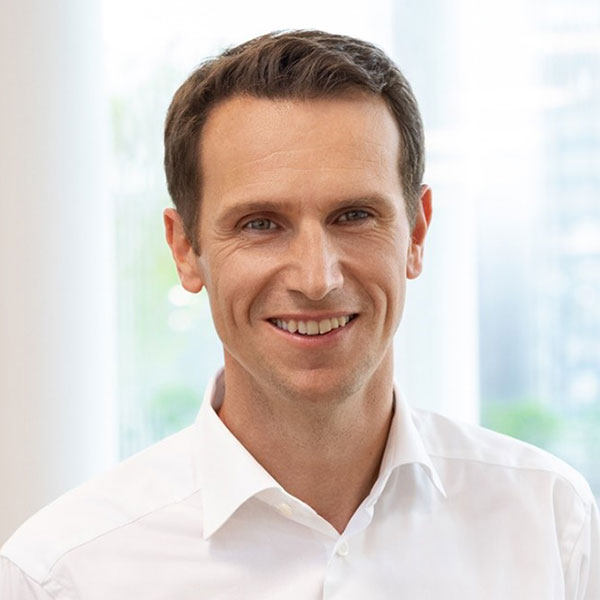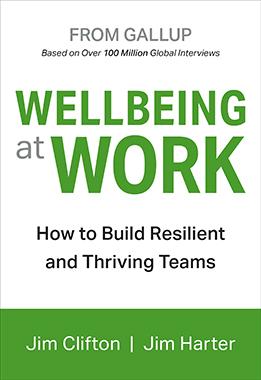A Conversation With Steven Baert

Steven Baert
Chief Human Resources Officer for Novartis
CliftonStrengths Top 5: Relator | Achiever | Responsibility | Self-Assurance | Arranger
While some leaders are concerned about remote employees' productivity in a boss-less workspace, Novartis AG is actively unbossing its people.
The concept is part of a development initiative, the Unbossed Leadership Experience, that the $48 billion pharmaceutical and gene therapy giant launched in 2018. Novartis built the initiative on the belief that industrial-era approaches or digital-era assumptions aren't up to the real-world challenges of its 20,000 leaders.
"The real value of human capital is the ability to innovate in extremely complex situations," Novartis CHRO Steven Baert says. "Making sense of very complex situations requires a different type of leadership."
That kind of leadership, as Baert explains in this CHRO Conversation, generates better solutions to tougher problems. And Baert says that the teams of Unbossed leaders aren't less productive -- indeed, they're more engaged and motivated because they have greater purpose and impact.
On the other hand, as Baert warns, Unbossed leaders must accept a great deal of vulnerability, self-awareness, coaching and change. But in the end, "amazing things start to happen," Baert says. "And it's beautiful to see."
Emond: Where did the concept of "unbossing" come from?
Baert: Most modern leadership is based on the principles of the Industrial Revolution, which were about increasing productivity and producing the same quality over and over again -- consistency and efficiency. Not that long ago, people thought that the Digital Revolution would reduce the role of people. We believe it's rather the opposite. Artificial intelligence helps us deal with everything that is predictable, that can be automated, but the real value of human capital is the ability to innovate in extremely complex situations -- the pandemic provides an example of that. As a result, the Digital Revolution and automation require you to get the best out of the human capital you have, to stimulate different thinking, to leverage the collective strengths of your team. Therefore, the old idea that the leader has to be the most experienced or the wisest or the smartest member of the group is becoming redundant. Making sense of very complex situations requires a different type of leadership. That's why we're shifting our view of leadership. And we developed a new approach to development around that shift -- the Unbossed Leadership Experience.
Emond: How do you mean "unbossed"?
Baert: It's a provocative term for empowerment, based on behavioral theories around human motivations for change. Telling people what you want them to do isn't as effective as motivating them to change -- it's a little bit similar to knowing that sports are good for you, but still not getting off the sofa. Yet, when you have empowered people inspired by purpose and curious to learn new things, the way their leader leads his or her team becomes even more important. Therefore, we need to start with leaders' self-awareness. That might sound so obvious and almost old school, but it's surprising how very few people are aware of their own drivers and motivations, including their strengths. And more importantly, their fears and anxieties.
Raising self-awareness and mindfulness requires practice -- practice to become a better observer of yourself, practice to see yourself as an object rather than a subject, practice to listen to the thoughts in your head in order to become much more present. When you are more self-aware, you appreciate what's going on in the room, what could be playing in the heads of the other people. You create clarity, and you become a better coach. That allows you to let go of some of the need to retain control over situations. You are able to set a direction and create safety in the room so everybody can contribute. That gives you the courage, once everything has been debated and said, to make a decision, support the team and execute. When you're coaching, being available and taking responsibility, amazing things start to happen. That's why Unbossed is encouraging, but not optional. There is no hiding from this; you need to do the work and continuous practice in order to develop.
"Not that long ago, people thought that the Digital Revolution would reduce the role of people. We believe it's rather the opposite."
Emond: How long have you been using this approach?
Baert: We started the Unbossed design in early 2018 as part of our overall cultural transformation. We began with the executive committee, then the top 300. As of last year, we've taken Unbossed to 5,000 people, but our ambition is to reach all 20,000 people managers in the next three years. While I reject the idea of the frozen middle, I do believe organizational change starts with individual change from the top.
Emond: Gotcha. So how are you helping them change their thinking?
Baert: We start with the will and the skill. We believe that knowledge workers are intrinsically motivated by work that is meaningful to them and has impact and purpose. They want a high level of autonomy, and they want to continue to grow and learn new skills. Dan Pink, in his book Drive, calls that "mastery, autonomy and purpose," but we call that "inspire, curious and unbossed."
Emond: What's the format?
Baert: The work is built around four phases, with two immersions and work in between. The first immersion starts with a 360-degree assessment that gives you a rich insight into who you are as a leader. You are then supported through a four-day deep immersion aimed at increasing your self-awareness -- looking at the assumptions you hold and what is really stopping you from being an inspired, curious, Unbossed leader. As you come out of that, you are assigned a coach, and you start working with your team and your Unbossed cohort for peer coaching. The second immersion is similar, another 360, more coaching to apply what you learn. Once a year, we do a team perspective resulting in a net promoter score for leaders, and we run four engagement surveys a year that give managers a very detailed report of their team's engagement. That gives you a trend line so you can see how things are going for you. That information is kept between you and your coach during the first two immersions to sustain a safe learning environment. After that, your leader and HR partner have access, and accountability kicks in.
"Artificial intelligence helps us deal with everything that is predictable, that can be automated, but the real value of human capital is the ability to innovate in extremely complex situations -- the pandemic provides an example of that."
Emond: Is this online or in person?
Baert: When we started, leaders took part in a one-week off-site. There was a strong bonding experience in that. But you can't easily scale it to 20,000 people, and in the middle of the program rollout, COVID hit. So, like many others have, we had to redesign the entire program for Zoom. But to our surprise, the impact is the same, if not deeper. Even in that format, people can actually open up and do the self-reflection with a small group of people in a trusting learning environment. That was a real gift because it made it possible to scale up Unbossed.
Emond: How do you go about helping people get self-awareness?
Baert: We are a science-based company, so we use a lot of research on human motivation and human behavior. We were very inspired by the work of Robert Kegan, Bill Torbert and Susanne Cook-Greuter on how humans grow in an ever-changing context, and we seek to apply this at Novartis to help our leaders grow and to ensure that there is an emotional engagement to the work -- for our leaders to see and feel the need to adapt. That's why our leaders take 360-degree assessments early in the first immersion and then take the data back to their team. I will never forget the moment that I got a 360 back that made me sit down and say, "OK, I need to read this a little bit closer." Leaders openly discuss those data with their team and then they decide on one big thing to work on: Where am I going to start? After that, they take a 360 again every six months for two years at least, going back to the same dataset to see how they evolve, along with their team.
Emond: That sounds ... vulnerable.
Baert: Often, leaders think that vulnerability is a sign of weakness. I certainly felt very exposed and very vulnerable when I took my 360 back to my team. But, strangely enough, teams often perceive vulnerability as authenticity and a sign of strength, because the things you believe you have been able to hide from the team are no secret to them. Being so open gives you a kind of support mechanism within your own team. There is a support mechanism among all the leaders who go through Unbossed. Most leaders, all but the executive committee, saw their leaders go through this themselves. That mutual support makes this feel safe. We're all growing in self-awareness.
Emond: What kind of content do you deliver in those immersions?
Baert: There are a few core concepts: Kegan's adult development theory -- the socialized mindset versus the self-authoring mindset versus the self-transforming mindset -- to help you understand your motivations and needs. This gives you a framework that helps you become a better observer of yourself. Then we go into the Cynefin Framework, from understanding the obvious, to the complicated, to the complex, to chaos, to disorder so that they learn to assess situations for what they are. As Jennifer Garvey Berger points out, not every problem is the same problem, and there are leadership "mind traps," which is the brain's desire to come up with a simple solution to a complex problem or reach consensus. That framework helps leaders analyze the positive and the negative sides of a polarity. Then we go deep in mindfulness exercises, including meditation and reflection, because seeking your own purpose is quite a confrontational journey.
Emond: How so?
Baert: For instance, some people don't ask for or give feedback because they think it will damage their relationships and their peers or teams will no longer appreciate them -- yet, that feedback makes them a better leader and improves their relationships. That's an assumption we all deal with. Unraveling assumptions and polarities, which we may previously have been unaware of, is a very emotional moment for people.
Emond: You mentioned at the beginning that this was part of an overall culture transformation. Why was leadership development important to that?
Baert: Cultural transformation is needed because we saw that, very often, our culture was getting in the way of our best performance. And leaders play such an important role in how the team shows up. That's why we intend to roll the same content out to all managers. Of course, we keep seeking feedback and we learn along the way, and the data allow us to adapt the program and fine-tune the measures. But it's beautiful to see how the program impacts the engagement of their teams. We're already seeing the impact.
Emond: What kind of impact?
Baert: Actually, the pandemic provides an example. In our company, the normal reaction to a crisis is to set up a very rigid central crisis management team that would have required a lot of tracking and reporting. It would be a few experts telling 110,000 people how to do their job. We very quickly realized that this was actually the key test moment of our new culture. So we set two very basic principles -- the safety and wellbeing of our associates, and the continued supply of medicines to our patients -- and then we flipped the pyramid. Instead of the teams being in support of their manager, the manager was in support of the teams, because they're usually closest to the customers. That allowed us to come up with very innovative ways of overcoming problems, like some of the border closures that prevented us from shipping raw materials from one site to another. And we were able to do remote clinical trial monitoring through the input from our people who were closest to it. They could quickly generate ideas and solutions. There are many examples of our ability to quickly resolve very complex problems because of the knowledge in the room, and because of the willingness of a leader to say, "I have no clue how we're going to solve this, but here is the direction we must take. Here is the vision, so who has some ideas?"
If you can create that safety in the room, people can volunteer what they may have, in the old days, believed were stupid ideas. If a leader does that, suddenly people start to build on each other's ideas and nobody feels they don't belong in the room. Suddenly, everybody feels that they're there to contribute to the solution. As a result, people are more motivated -- our engagement has gone up 6% during this period. But at the same time, they really feel that they matter. That they have impact.
Emond: That supports your original premise -- that knowledge workers want to have impact.
Baert: Exactly. And by giving the initiative to our associates, they tell us what they need, and we as leaders are there to make it happen. And the impact of that is very powerful. It's incredible to see.
Explore other CHRO conversations:
- Philips CHRO Daniela Seabrook
- Thermo Fisher Scientific CHRO Lisa Britt
- IBM CHRO Nickle LaMoreaux
- Standard Chartered Bank Group Head of Human Resources Tanuj Kapilashrami
- Zurich Insurance Group CHRO David Henderson
- AT&T CHRO Angela Santone
- Merck KGaA CHRO Dietmar Eidens
- Eli Lilly Senior VP of HR and Diversity Steve Fry and Chief Diversity Officer Joy Fitzgerald
Jennifer Robison contributed to this article, which was based on an interview conducted by Larry Emond.




